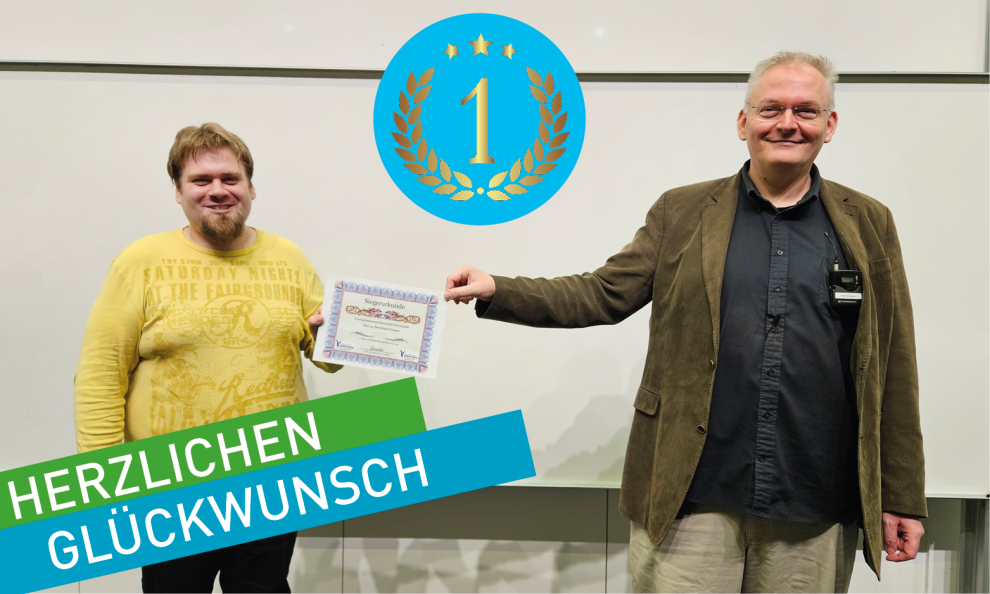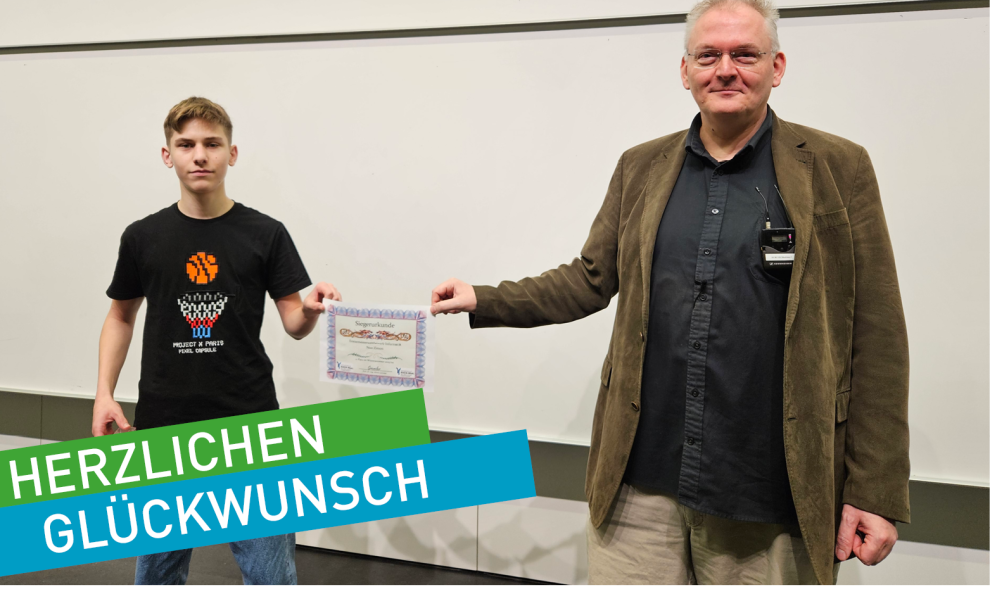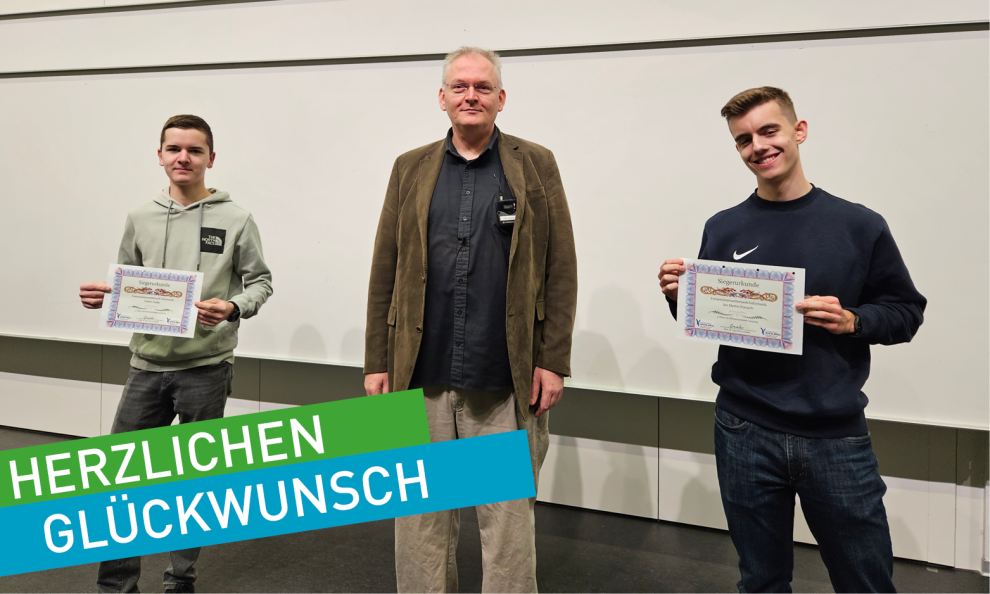Can artificial intelligence find traffic hazards in Moers?
E-Government student wins first-semester computer science competition
Once again, numerous first-year students of the Bachelor degree programmes "Media Communication and Computer Sciences" and "E-Government" of the Faculty of Communication and Environment took part in the annual internal computer science competition. E-Government student Marius Bernhard Krause was able to prevail against all fellow students and won first place.
The annual competition is part of the "Fundamentals of Computer Science" module, in which Professor Dr.-Ing. Ulrich Greveler teaches the technical fundamentals of computer science and the structure of computer networks.
In this year's competition, students had to evaluate a large open data set from the city of Moers on administrative offences in flowing traffic. Due to the large number of individual measurements that were collected within a year, the analysis was a real IT challenge.
The task was to find the location in Moers where the highest number of offences or the most serious offences occurred; the latter could be assessed based on the amount of the fine. The competition put the students under time pressure: who could be the quickest to produce a correct evaluation? The students had the choice of using artificial intelligence, traditional spreadsheets or developing a programme to carry out the evaluation.
Although the AI was ahead in terms of speed, it overlooked the fact that adjustments had to be made to the data records. This resulted in incorrect analyses which some students failed to notice. The winner then was a student who solved the problem without AI.
The location with the highest number of mainly speeding offences was found in the immediate vicinity of a primary school. It would be safer for the children if everyone kept to the speed limit and drove carefully. Thanks to administrative informatics, it is possible to find dangerous spots and contribute to the safety of road users.
After a bit more than an hour, Marius Bernhard Krause delivered the correct solution to Professor Greveler and thus secured victory in the competition. The second place went to Nico Zimon (E-Government). The third place was shared byFabian Halbe (E-Government) and Jan Martin Krausch (Media Communication and Computer Sciences). Analysing data under time pressure was a new experience for many.
“An inclination towards mathematics, an interest in logic and a creative approach to the digital world are ideal prerequisites for studying”, says Professor Greveler who organizes the competition. “Our competition is a special challenge: the result has to be achieved very quickly, but still be correct and not just adopted by AI."
Marius Bernhard Krause is a student of the E-Government degree programme which is also offered in an additional, dual-vocational mode of study in collaboration with the State Government of North Rhine-Westphalia.
In its computer science programmes Rhine-Waal University of Applied Sciences provides a well-founded basic education linked with application relevance and current technologies.



